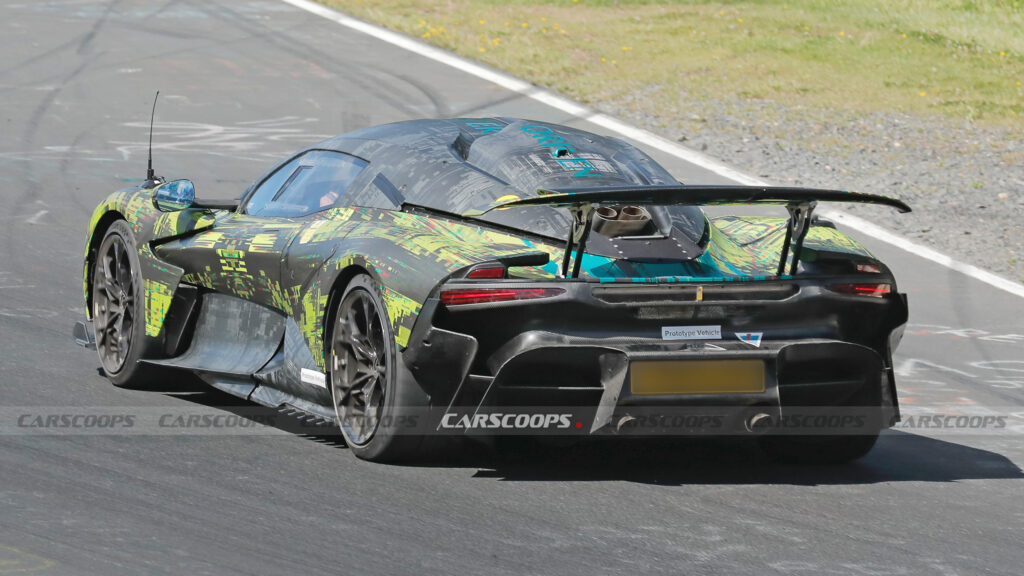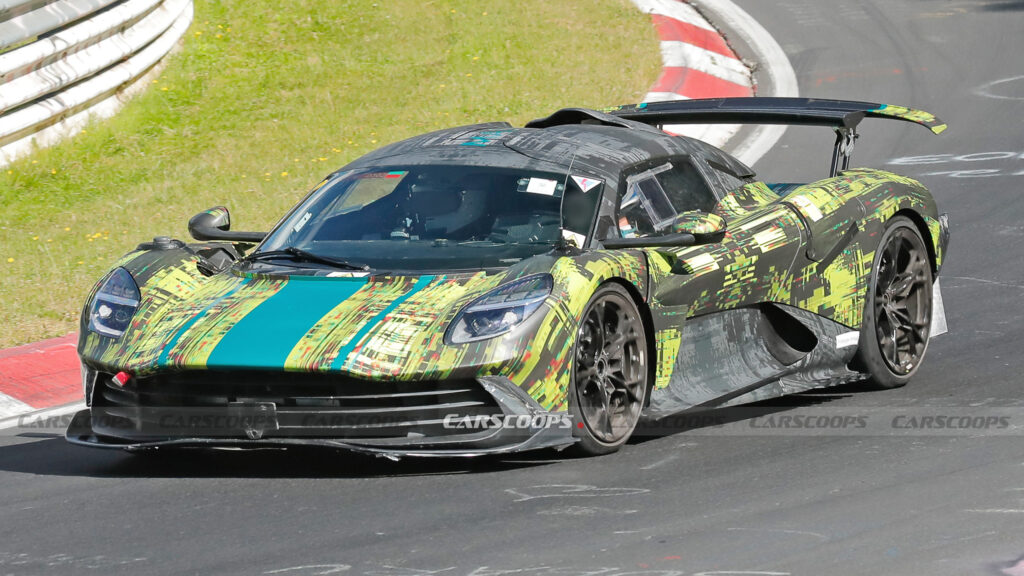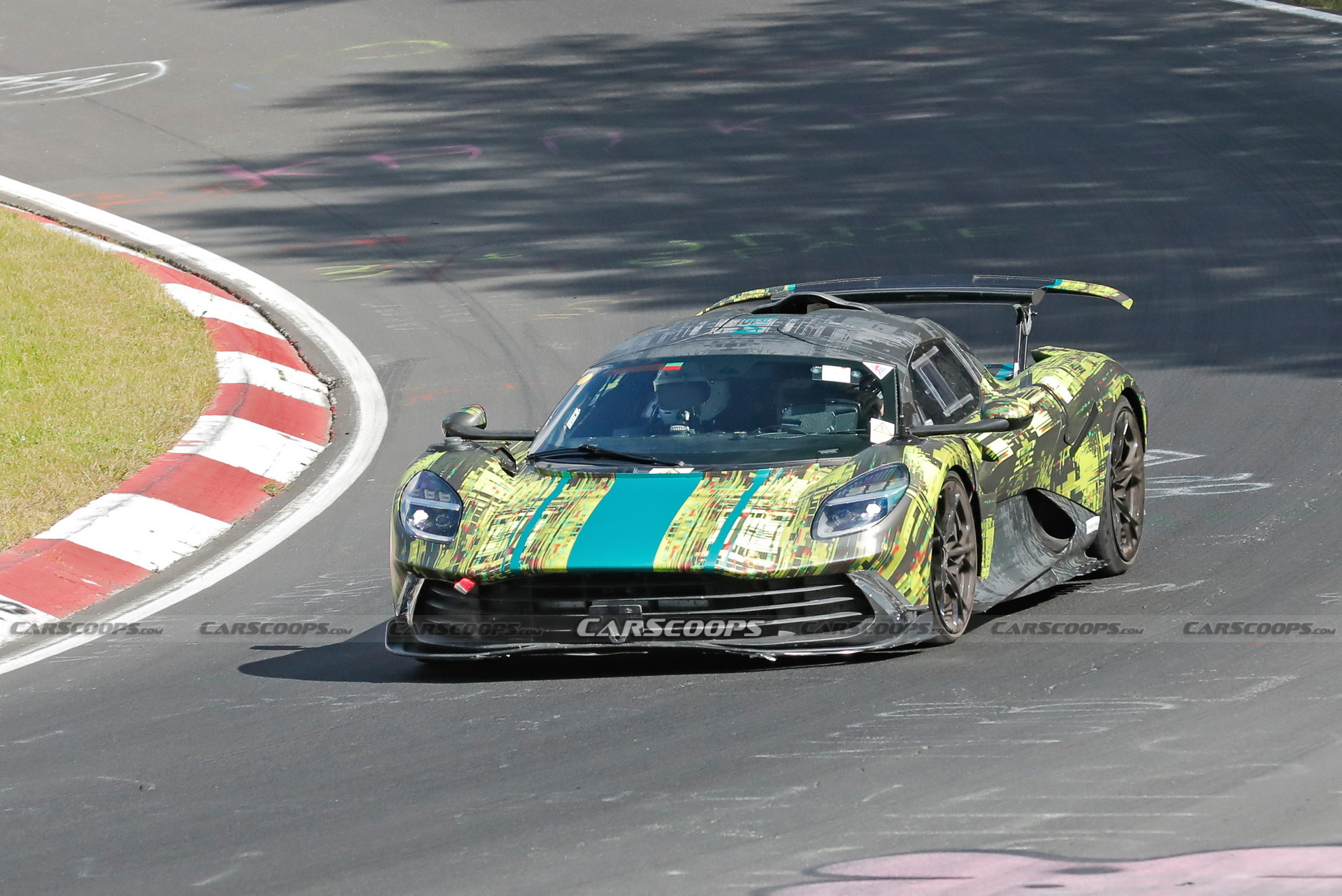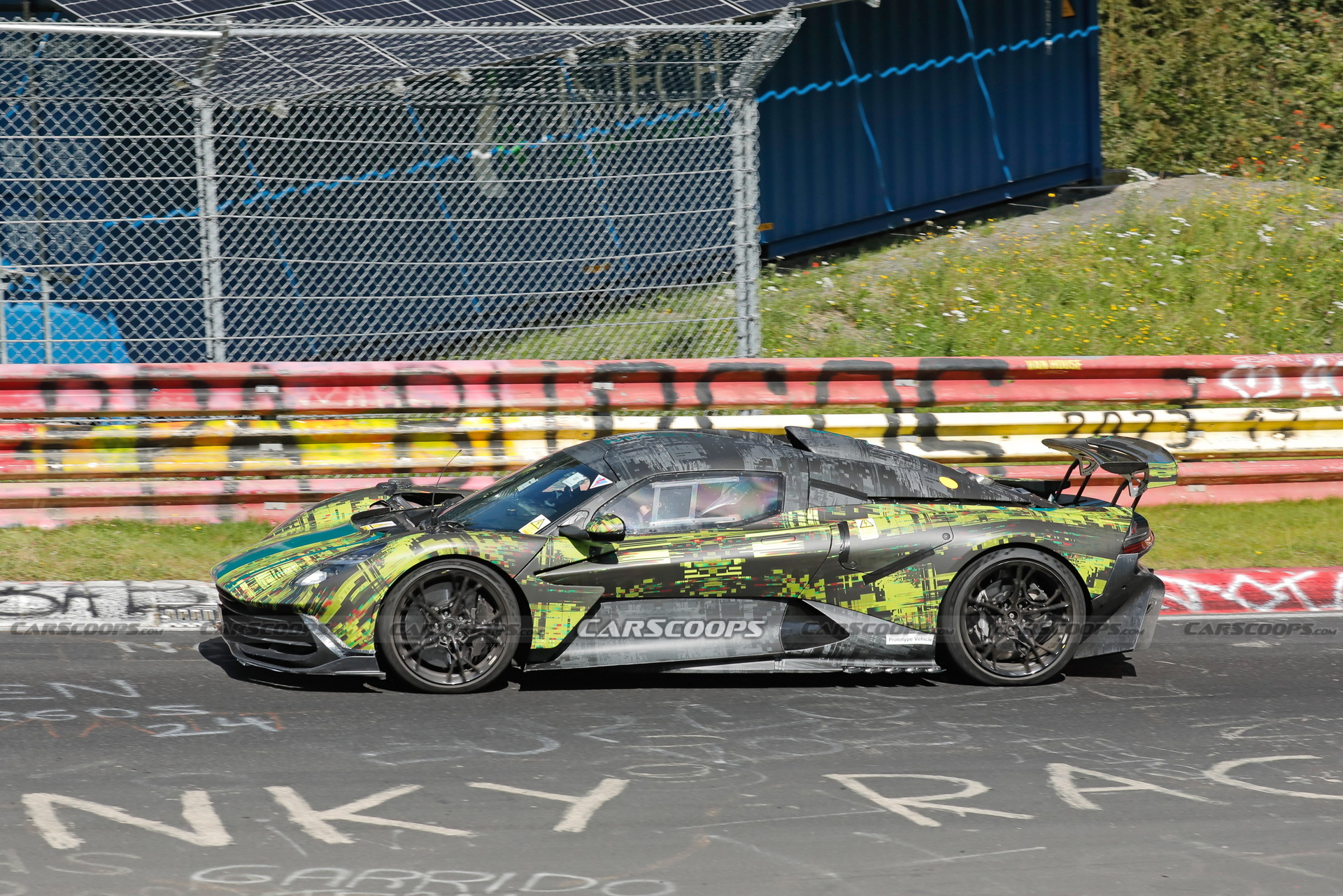- Powering the new supercar is a 4.0-liter twin-turbo V8 with three electric motors.
- The British marque has confirmed the car churns out 998 hp and 738 lb-ft.
- With a key focus on aerodynamics, the Valhalla could threaten the Nurburgring production car lap record.
Aston Martin’s next mid-engined supercar has been spotted testing at Germany’s infamous Nurburgring Nordschleife, looking absolutely brilliant but also sounding rather tame.
The Aston Martin Valhalla has been in the works for many years and has undergone plenty of changes during its development. Initially, the supercar was going to use an all-new twin-turbocharged 3.0-liter V6 built in-house. However, Aston Martin made the switch to a 4.0-liter twin-turbo V8 in 2021, which sits at the heart of the plug-in hybrid powertrain of this lightly-disguised prototype.
Read: Aston Martin Valhalla Hits The Track Sporting An Updated Design
Visually, the prototype looks very similar to the one that Aston Martin released photos of in late 2023 and is thought to be a track-focused AMR variant. Compared to the regular model presented in mid-2021, the test car sports new headlights, a larger front splitter, new rocker panels and side air intakes, distinctive wing mirrors, and a massive hydraulic rear wing.
The car’s V8 will produce 739 hp and be supplemented by three electric motors for a combined 998 hp or 1,012 PS and 738 lb-ft (1,000 Nm) of torque. Mated to the 4.0-liter is an all-new eight-speed dual-clutch transmission driving the rear wheels through an electronic limited-slip differential. Aston Martin claims the car will need just 2.5 seconds to hit 62 mph (100 km/h) and reach a top speed of 217 mph (350 km/h).

While the Valhalla has one heck of an engine, this prototype isn’t very loud, particularly for a V8 with a flat-plane crank. It’s unclear how hard the engineer behind the wheel was driving the car, and they were likely short-shifting through the gears. Nevertheless, it’s certainly not the most awe-inspiring soundtrack.
Like the Valkyrie, Aston Martin has focused extensively on extracting as much downforce from the car as possible, and at 149 mph (240 km/h), it should produce over 1,323 lbs (600 kg) of suction. This downforce figure, combined with the trick hybrid system, has given Aston Martin the confidence to target a sub-6:30-minute Nurburgring lap time with the car.

















